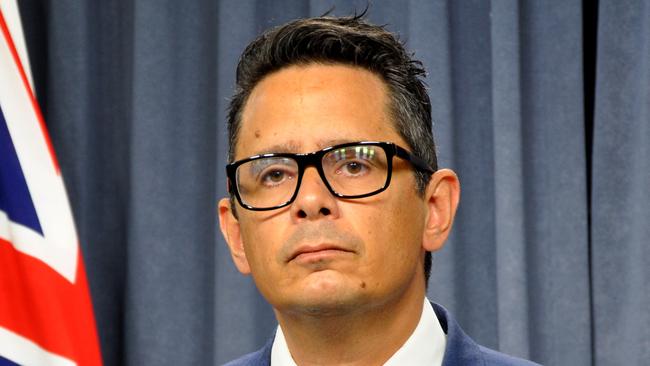BHP learns Rio Tinto’s lessons on Juukan Gorge caves
BHP has declared it will not move to destroy any heritage sites until it has negotiated with relevant traditional owners.

Rio Tinto’s fall from grace over the Juukan Gorge caves blast has prompted another Pilbara iron ore mining giant, BHP, to declare it will not move to destroy any heritage sites until it has negotiated with relevant traditional owners.
It has also lifted the gag on Aboriginal groups to publicly discuss the content of mining agreements, after criticism that some agreements contain clauses that prohibit public disclosure.
“BHP has confirmed to traditional owners that it does not regard any term of its agreements with them as preventing them from making public statements about cultural heritage concerns,” according to a statement issued on Thursday.
“If any provision in BHP’s agreements can be regarded as having this effect, then BHP will not enforce that clause.”
BHP said it would strengthen its commitment to cultural heritage management and “not act on existing section 18 approvals from the WA government without further extensive consultation”. The company said it had set up a heritage advisory council with the Banjima custodian group over the South Flank mine near Newman “to understand the best approach for them”.
Approval to blast 40 Aboriginal sites at South Flank was given by West Australian Aboriginal Affairs Minister Ben Wyatt in late May, amid an outcry over the destruction of Juukan Gorge caves by Rio Tinto. BHP subsequently pledged not to interfere with the sacred sites until it had conducted further consultation with the Banjima people.
Mr Wyatt urged BHP to work with Banjima to do what it could to avoid or minimise impact, regardless of the section 18 permit.
BHP said it had consulted with Indigenous leaders “from around our operations, and at a state and national level”.
“We recognise that what was lost at Juukan Gorge is not only the loss of a site of deep and unique living cultural heritage, but also a loss of trust, not just for the company involved, but with impacts for the entire resource industry,” it said in the statement.
Another miner, Fortescue Metals Group, has rejected a shareholder request for a moratorium on destroying cultural sites at its Pilbara mines.
A shareholder resolution demanding the moratorium was put by the Australasian Centre for Corporate Responsibility, which said Fortescue rejected it after courier delivery of the documents was delayed for COVID-related reasons.
ACCR executive director Brynn O’Brien said it meant the resolution would not be put to the company’s annual general meeting in November.
“That FMG has knocked this resolution back on a minor technicality, especially after the international investor outrage heaped on Rio, calls into doubt its interest in dealing with the important issues raised by its shareholders and Aboriginal traditional owners,” he said.
Fortescue said it respected the right of shareholders to put resolutions but the notice was received after the applicable cut-off date. It said it had worked with traditional owners to avoid and protect nearly 6000 heritage sites.



To join the conversation, please log in. Don't have an account? Register
Join the conversation, you are commenting as Logout